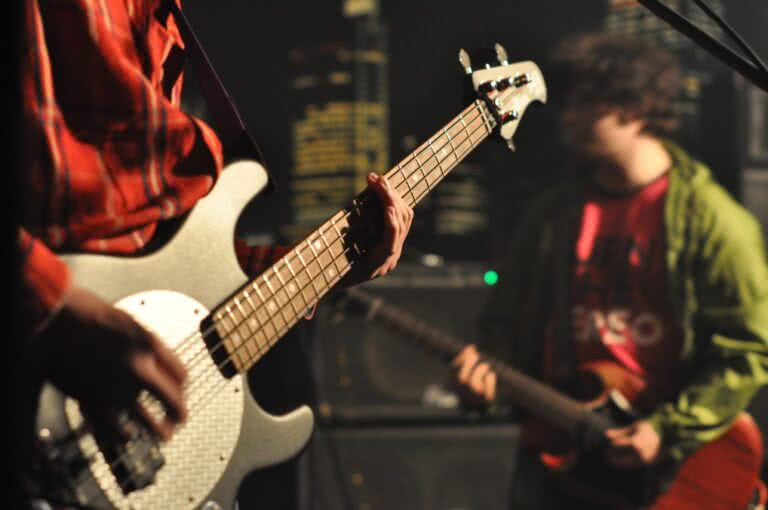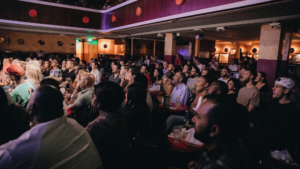When lockdown was announced back in March, event creators across the world had to react quickly. For most, this meant pivoting to an online model. While virtual sessions started as a stopgap solution to a temporary problem, we at Eventbrite have seen first-hand how they’re becoming a permanent fixture. Creators see online events as a great tool for expanding their audiences and increasing growth – and they’re planning to continue in the long term.
While platforms like Eventbrite help reach audiences across the globe, other types of technology can assist with the hosting side of virtual gatherings. One is Sansar: an immersive platform that spent the past five years in development and has already revolutionised the music industry. Ross Meador, a director of Wookey Technologies – the company that owns Sansar – tells us how increased audience numbers and interest boosted the destination’s popularity.
Personalised solutions
In this new online-dominated events world, the right technology can help make virtual events feel less awkward, simulating the feel of in-person events to encourage a larger number of attendees. Sansar’s engine allows people to fully immerse themselves in a virtual world. Event creators can build their own stages, or commission one from Sansar’s in-house team. Attendees also have options. They can create and customise an avatar to interact with the virtual world and the events hosted within it.
“Our audience can hit balloons into the air, pick up things, talk to each other, and move around,” Meador explains. “It’s just like going to a real-world event – except the lights are more spectacular and the other audience members are dressed in the wildest costumes you can imagine.”
One of the biggest joys of attending a gig is, of course, the atmosphere. By hosting events in an immersive digital world, Sansar is able to imitate this. Even better, musicians are able to interact directly with the audience.
“Somebody that’s dressed up as a monkey might say, ‘Hey, play XYZ song!’ and [the singer] goes, ‘Yo, thank you Mr. Monkey, here’s your favourite song,” says Meador. This intimate level of interaction rarely happens at physical events, making this one area where the virtual world can allow a greater connection between performer and audience.
A whole new (online) world
Sansar’s success story has demonstrated just how vast the online events market really is. After being acquired in March, the platform immediately began to attract big names. The largest was the team behind Shangri-La Glastonbury, which used Sansar to host Lost Horizon, an online recreation of the famed festival grounds.
The multi-stage experience took place in July, booking plenty of celebrities, including visual artists, superstar DJs, and up-and-coming acts. People swapped muddy fields and tents for computers and virtual reality headsets. Despite this switch, it was an unmitigated success. “We had over four million views of that show, so it was huge,” Meador says.
After only being in business for a few months, being tasked with developing such a large-scale event was rather challenging. Up until then, most shows hosted on Sansar had only gained an audience of a few hundred. One thing that made hosting Lost Horizon easier was using an established platform to manage ticket sales and reach a wider audience. “Eventbrite was great for us,” admits Meador. “It’s so easy to get in there and create your events. And then the terrific reporting that came back to us from how many tickets were sold and when … all of that worked very well.”
Having access to ticket data is super important for event professionals. It doesn’t just demonstrate how well your recent event performed, but also provides the information you need to supercharge future events. By using facts and figures, you can build a picture of your ideal audience and how to reach them.
An innovative approach
From expanding your audience to attracting a variety of partnerships, hosting events online comes with a number of benefits. Many events professionals even view virtual as a permanent option going forward. As a result, businesses are looking to find creative ways to keep their online events fresh and keep attendees engaged. This is where immersive tech like Sansar can play a role. While the platform mainly positions itself as a music venue, it can be used for a variety of other event types.
Earlier this year, for example, the company worked on an event for Intel. The designers created a room shaped like a giant computer chip that avatars could walk inside to examine different components. The company also took on a project for the Smithsonian Institution, recreating several of the museum’s objects so that people could visit virtually while the real-life building was closed.
Meador acknowledges that while “not every major corporation will want to have all their executives turn into avatars and go into a room dressed up as monkeys and dragons,” the platform can be used in imaginative ways by everything from corporate organisations to comedy shows. Plus, by bypassing the logistical costs that come with in-person events, these creative methods provide a more cost-effective way to get the word out to a wider range of people.
Looking ahead to consistent growth and sales
It’s clear that hosting online events can be a simpler way to grow. As well as giving any creator the ability to reach a global audience, virtual events can also increase revenue.
Meador sees potential in the future for platforms like his to run in conjunction with real-world events. “You can do your stadium [tour] and everyone who couldn’t get a ticket to the live show will want to come in and see the virtual show,” he says.
With unlimited potential in terms of ticket sales, audience interaction, and global reach, it’s easy to see why so many event managers believe that online is the future. Sansar has a booked calendar until the end of 2020, so it’s no wonder Meador is particularly optimistic: “Even after COVID-19 is over, as people become much more familiar and comfortable with consuming music and events online, and producers are able to see that they can make a lot of money with online shows in addition to the live shows, we really believe that things will not slow down at all.”
Whether you want to use cutting-edge technology or keep things simple, we can help you organise, launch, and promote your online events. So why not give virtual a go and set an online event up today?





